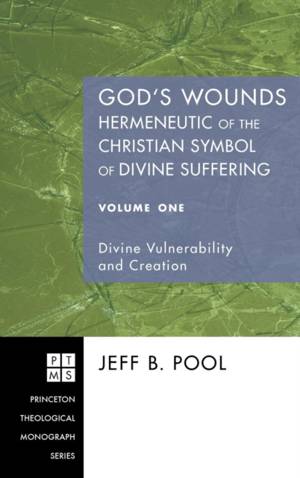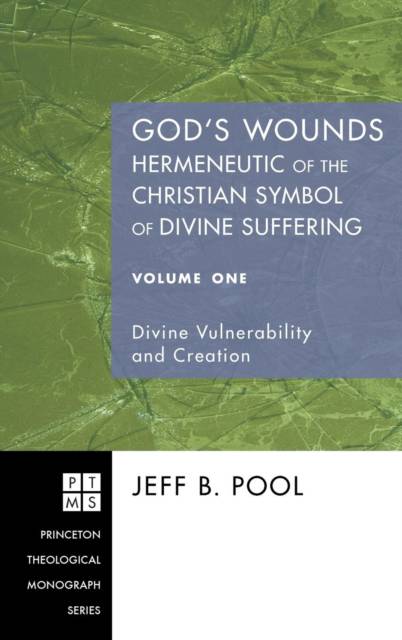
- Afhalen na 1 uur in een winkel met voorraad
- Gratis thuislevering in België vanaf € 30
- Ruim aanbod met 7 miljoen producten
- Afhalen na 1 uur in een winkel met voorraad
- Gratis thuislevering in België vanaf € 30
- Ruim aanbod met 7 miljoen producten
Zoeken
God's Wounds: Hermeneutic of the Christian Symbol of Divine Suffering, Volume One
Divine Vulnerability and Creation
Jeff B Pool
€ 97,95
+ 195 punten
Uitvoering
Omschrijving
This book constitutes the first volume of a three-volume study of Christian testimonies to divine suffering: God's Wounds: Hermeneutic of the Christian Symbol of Divine Suffering, Divine Vulnerability and Creation. This study first develops an approach to interpreting the contested claims about the suffering of God. Thus, the larger study focuses its inquiry into the testimonies to divine suffering themselves, seeking to allow the voices that attest to divine suffering to speak freely, to discover and elucidate the internal logic or rationality of this family of testimonies, rather than defending these attestations against the dominant claims of classical Christian theism that have historically sought to eliminate such language altogether from Christian discourse about the nature and life of God. Through this approach this volume of studies into the Christian symbol of divine suffering then investigates the two major presuppositions that the larger family of testimonies to divine suffering normally hold: an understanding of God through the primary metaphor of love ("God is love"); and an understanding of the human as created in the image of God, with a life (though finite) analogous to the divine life--the imago Dei as love. When fully elaborated, these presuppositions reveal the conditions of possibility for divine suffering and divine vulnerability with respect to creation.
Specificaties
Betrokkenen
- Auteur(s):
- Uitgeverij:
Inhoud
- Aantal bladzijden:
- 378
- Taal:
- Engels
- Reeks:
- Reeksnummer:
- nr. 100
Eigenschappen
- Productcode (EAN):
- 9781498250245
- Verschijningsdatum:
- 1/01/2009
- Uitvoering:
- Hardcover
- Formaat:
- Genaaid
- Afmetingen:
- 152 mm x 229 mm
- Gewicht:
- 671 g

Alleen bij Standaard Boekhandel
+ 195 punten op je klantenkaart van Standaard Boekhandel
Beoordelingen
We publiceren alleen reviews die voldoen aan de voorwaarden voor reviews. Bekijk onze voorwaarden voor reviews.








